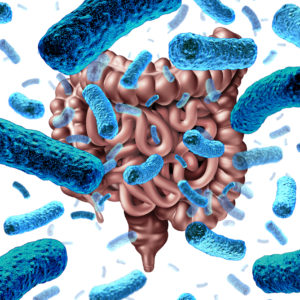
For the study, researchers aimed to find a relationship between sleep disruption and microbiota in rats over a 28-day period. Biological features associated with poor arterial blood pressure changes were also analyzed.
The gut microbiota refers to the collections of microorganisms living in the intestines. It has recently become a hot topic as it is thought to play an important role in good health and disease prevention. As more research becomes available, it is becoming apparent that the gut microbiome is linked to almost all health issues.
Disrupting Sleep Patterns
The study started by disrupting the sleep periods of the rats. Since rats are nocturnal, the experiments were designed to interfere with their daytime sleep periods. Telemetry transmitters measured the brain activity in rats along with blood pressure and heart rate. To determine if there were any changes in microbial content, fecal matter was analyzed.
“When rats had an abnormal sleep schedule, an increase in blood pressure developed—the blood pressure remained elevated even when they could return to normal sleep. This suggests that dysfunctional sleep impairs the body for a sustained period,” said Katherine Maki, author of the study.
Maki and her colleagues also found that after a week of sleep disturbances, microbiome changes started to occur. The genetic material of all bacteria living in the colon is essential for good health. With the disruption of sleep, researchers found imbalances among the different types of bacteria, including an increase in microbes associated with inflammation.
The study also found that when sleep disruption stopped, everything did not go back to normal immediately. This research was able to show a very complex system with the presence of multiple pathological factors.
As this initial research gains more attention, studies will continue to expand on the information and examine the pathways involving the gut microbiome and metabolites produced by gut bacteria. Researchers hope they will be able to find exactly how long high blood pressure and gut microbiome alterations persist when sleep is disrupted. This will help physicians to offer better treatments for people who are shift works or those who suffer from sleep disorders.
“We hope to find an intervention that can help people who are at risk for cardiovascular disease because of their work and sleep schedules. People will always have responsibilities that interrupt their sleep. We want to be able to reduce their risk by targeting the microbiome with new therapies or dietary changes,” Fink said.